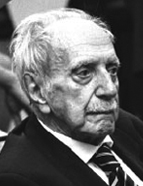

History, according to Eduardo d’Oliveira França, was a science of man, seeking to situate him in different historical ages, as he states in the introduction to his doctoral thesis. Historical thinking – and this gave it a psychological dimension that differed from other scientific fields – brought facts to life, which occurred because historians worked with insights, not limiting themselves to being mere spectators. But facts would only produce a convincing explanation if considered within the overall framework of the political, economic and religious phenomena of the period in question. This concern for context led him to always reject monocausalities, understanding man as a sum of characters, without exclusive “economic” (economic history was in vogue in the post-war period when he wrote these words), “political” or other characteristics. More than twenty years later, in 1974, he returned to the theme, defending historical totality, understood as the history of the sum of a people’s experiences, including their mentalities.
The goal was to recognise the “man of his time”, who resembles other ‘men of his time’; in his case, it was the search for an understanding of who that ‘baroque man’ of the Restoration era was, who was simultaneously colonising Brazil.
His interest in context may recall the historicist Zeitgeist, and he was certainly familiar with Huizinga’s work, as well as referring to Herder on the question of the mental attitudes of an era. But the dominant influence was that of the Annales, in the inflection of Lucien Febvre, with his taste for social psychology, and Marc Bloch, with his sociological inclination.
França advocates “understanding” as the historian’s main interpretative endeavour, but despite a brief mention of Simmel in a 1951 text on the “cultural function of history”, he had little contact with German sociology or hermeneutics. His conception is that of Bloch, as presented in the famous chapter “To judge or to understand?” in Métier d’Historien . It is an intuitively grasped psychological function, which is not – as França emphasises – advice to passivity or complicity and has nothing to do with the methodological steps defined in different hermeneutic procedures.
This work is financed by national funds through FCT - Foundation for Science and Technology, I.P, in the scope of the projects UIDB/04311/2020 and UIDP/04311/2020.
